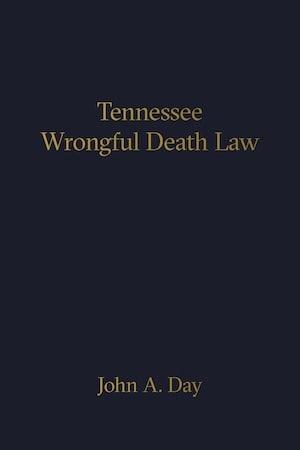Tennessee Wrongful Death Law Book

John Day has written a new book, Tennessee Wrongful Death Law. Wrongful death law is perhaps the most misunderstood part of Tennessee tort law. The law largely springs from a small number of statutes, most over a century old and written in the language of another time, but other aspects of the topic are pure creatures of common law. A true understanding of Tennessee wrongful law requires knowledge of both.
In the new book, John has gathered and analyzed all of Tennessee’s law of wrongful death for you, Hundreds of appellate court decisions and statutes are reviewed and summarized to bring you a ready reference guide on this important subject.
As you can see from the Table of Contents set forth below, the book covers the entire scope of wrongful death law, from the creation of the cause of action in Tennessee in 1850 until the current day, including an important Court of Appeals opinion on the issue that was accepted for review by the Tennessee Supreme Court in September 2022.
The book addresses scores of issues, from who has the right to bring a claim, specialized limitations of actions and statutes of repose issues in death cases, the scope of damages that may be recovered, and how damages are distributed under the law. Also addressed are 19 special issues in wrongful death cases.
The e-book version is now available on BirdDogLaw.com, and it will be updated as new decisions are released and new statutes are enacted. A limited number of printed and bound books are available for sale for $199.99 (plus sales tax and S&H).




